Follow the Advocate on Twitter @GSA_Advocate
Scientists have assessed the environmental impact of the largest offshore mussel farm in Europe
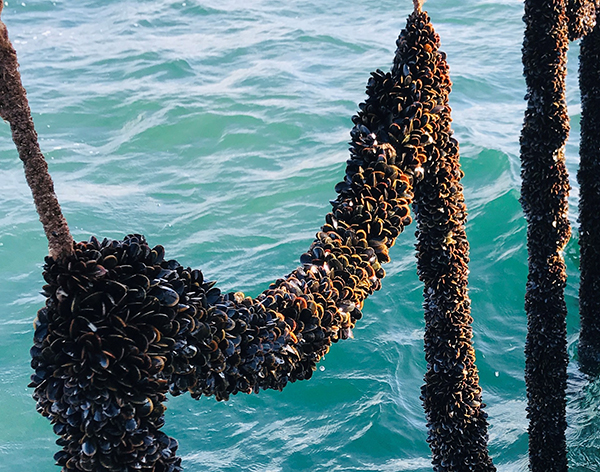
A new study from the University of Plymouth suggests that, in addition to helping meet global fish consumption demands, offshore aquaculture farms could potentially benefit the wider marine environment.
The study, recently published in the Aquaculture, Fish and Fisheries, was led by a team of researchers and Ph.D. candidates from the University of Plymouth’s School of Biological and Marine Sciences. The research is among the first to explore the environmental impact of offshore mussel farms and focused on Lyme Bay, which is located off the south coast of England and is the largest one in Europe.
Since it deployed its first ropes in 2013, scientists have used towed and static-baited underwater cameras for regular monitoring surveys, during which they tested the effects of the farm’s trial installations on the seabed habitat and the associated species living on it. They found that in addition to growing on the ropes, mussel shells were first observed on the seabed under the lines after just six months. Larger clumps appeared within the first 18 months after deployment.
Both the size of mussel clumps and the percentage cover of shells under the farm increased over time and this in turn led to increases in the abundance of other species. For example, the number of Atlantic horse mackerel (Trachurus trachurus) around the farm increased by more than 300 percent in the space of four years compared to other areas of Lyme Bay.
There were also marked increases in the number of European lobster (Homarus gammarus) and edible crab (Cancer pagurus), both species that are commercially important in Lyme Bay but were not expected to be found in this area as it is highly degraded from years of bottom towed fishing.
“Over the past 15 years, we have consistently shown that a ban on bottom-towed fishing has had positive effects on the environment,” said Dr. Emma Sheehan, project lead and the study’s senior author. “This study has given us the first ecological evidence that offshore mussel farming can deliver similar benefits on degraded seabed habitats.”
The great mussel debate: What’s wild, what’s farmed and what certification scheme fits the bill?
In addition to assessing the effects of a ban on bottom-towed fishing, it has shown that limits on crab and lobster pot fishing could offer long-term benefits and that the restored seabed is now able to recover more quickly following extreme storms.
Recommendations from this ongoing work have been included within the government’s 25-year Environment Plan, and a major UK government report into Highly Protected Marine Areas (HPMAs), led by former Defra Fisheries Minister Richard Benyon.
“This is the first phase of a long-term, multi-method project that is assessing how the farm impacts the surrounding marine ecosystem,” said Sheehan. “However, it immediately increases the evidence base available to policymakers to help guide the move to aquaculture installations offshore, supporting the national and international Blue Growth agenda.”
Now that you've reached the end of the article ...
… please consider supporting GSA’s mission to advance responsible seafood practices through education, advocacy and third-party assurances. The Advocate aims to document the evolution of responsible seafood practices and share the expansive knowledge of our vast network of contributors.
By becoming a Global Seafood Alliance member, you’re ensuring that all of the pre-competitive work we do through member benefits, resources and events can continue. Individual membership costs just $50 a year.
Not a GSA member? Join us.
Author
-
Responsible Seafood Advocate
[103,114,111,46,100,111,111,102,97,101,115,108,97,98,111,108,103,64,114,111,116,105,100,101]
Tagged With
Related Posts
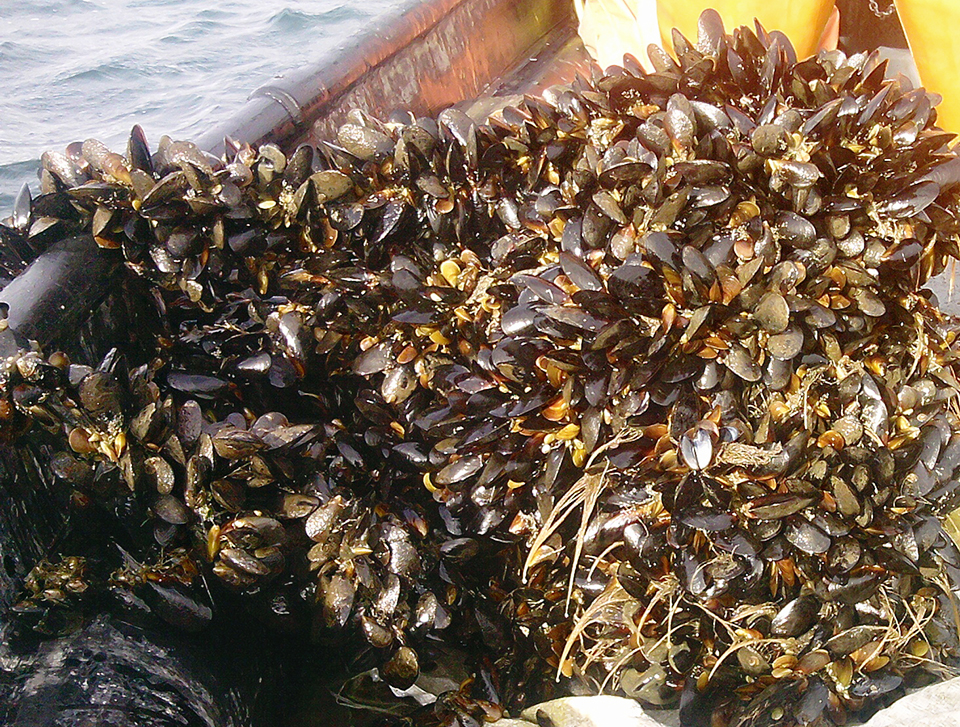
Intelligence
An overview of mussel culture in Chile
While Chile’s mussel industry has entered a growth phase, challenges remain, especially in the seed production and grow-out components. This contrasts with the well-developed nature of the country’s processing plants and marketing outlets.
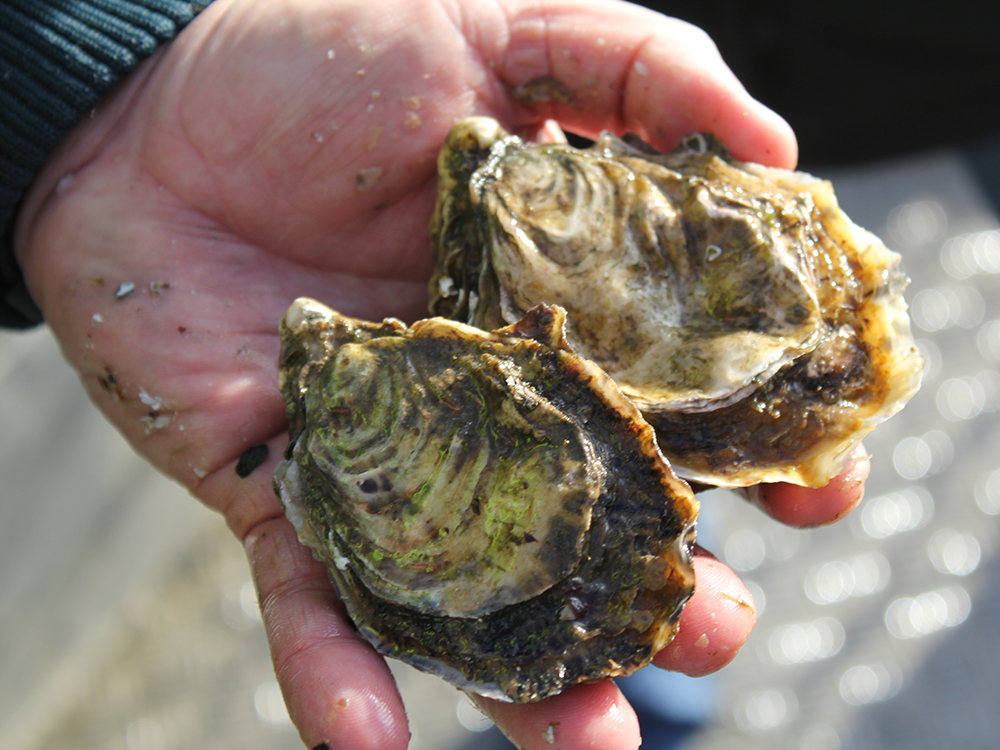
Intelligence
Behold the nutritious oyster
Oysters provide important, natural filtration of water and are an important component of many healthy coastal ecosystems because their active filtering can help improve and maintain water quality. For many coastal communities, oysters are an important food resource and excellent sources of protein and amino acids, zinc, selenium, iron and B-vitamins.
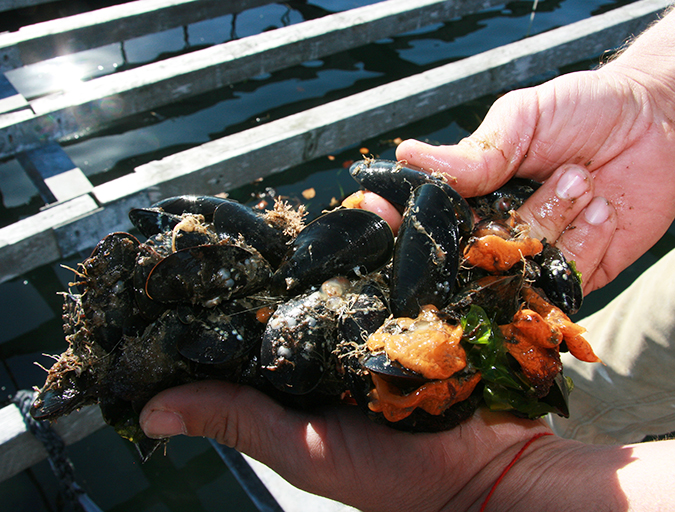
Intelligence
Images: Bangs Island Mussels in Casco Bay, Maine
This photo slideshow offers a close-up look at what restaurants in Maine and beyond are raving about: Bangs Island Mussels. Six years after purchasing the company from its founder, Matt Moretti says the niche shellfish supplier has expanded its production and market distribution.
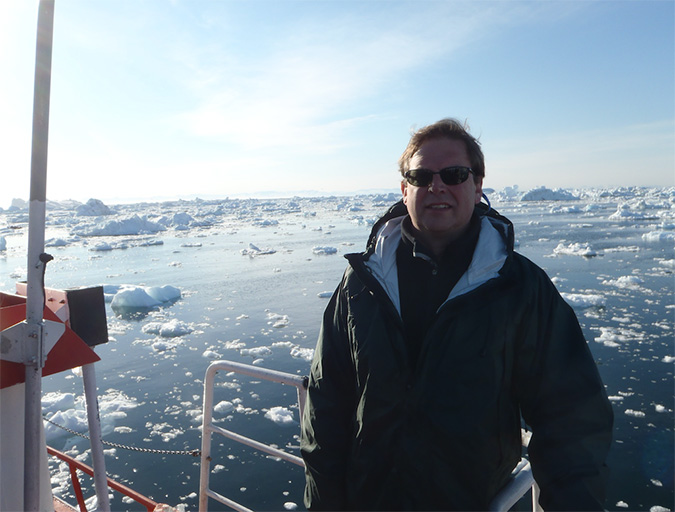
Innovation & Investment
Aquaculture Exchange: Sebastian Belle
The executive director of the Maine Aquaculture Association talks to the Advocate about the diverse and growing industry in his state (oysters, mussels, kelp, eels and salmon) and how aquaculture should be used as a rural development tool.



